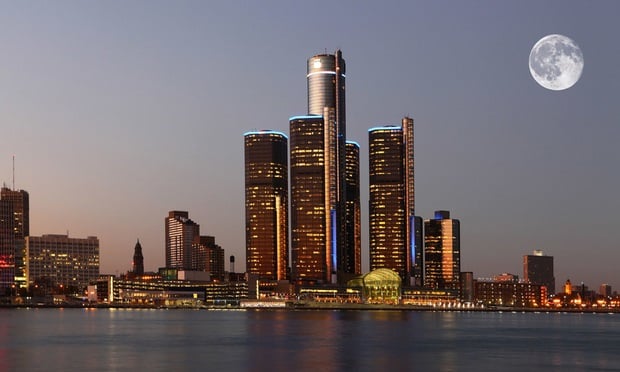Grant recipients and their projects include:
* $100,000 for the "Citizen Planner Program" at Michigan State University.
* $69,000 for the "Keweenaw-Blueprint for Tomorrow" for the Western Upper Peninsula and Development Region.
* $119,260 for "Establishing Successful Farmland Preservation Programs" for Michigan Integrated Food and Farming Systems.
"We're trying to encourage a broader discussion of land use in Michigan on a state and regional level," says Bill Rustem, vice president of PSC. "We're trying to bring together opposites such as residents and community leaders and developers and work together on what the Michigan landscape will look like in the future."
He adds the idea of People and Land is to provide money for the education of local and state officials about how to design growth patterns.
"One of the best examples is Traverse City. They have a program where they work with their chamber of commerce to create a significant effect on future development," Rustem tells GlobeSt.com.
Too often, Rustem says, local officials put constraints on the private sector without understanding proper growth issues.
"They establish five-acre zoning for residential, for example. That makes no sense from a business or environmental standpoint. They say they're doing it to protect open space. We're about questioning those kind of assumptions," Rustem says.
Instead of five-acre zoning, Rustem notes that communities should allow for smart growth, where development can flow through a property with equal space, or clustered in one area and surrounded by space.
Another tool not used sufficently by communities are planned-unit developments, which provide near-total control over the design and layout of a development, Rustem says. He adds that a PUD gives the developer and local officials options where there might have been only opposition and lawsuits, similar to the annexation threat in Milford Township by Roberston Bros.
The advisory group that runs People and Land is comprised of representatives from several statewide businesses, environmental and community organizations.
The organization funded an initial $125,000 round of small pilot grants in January. Recipients included American Farmland Trust, the Barry Conservation District and the Leelanau Conservancy.
Want to continue reading?
Become a Free ALM Digital Reader.
Once you are an ALM Digital Member, you’ll receive:
- Breaking commercial real estate news and analysis, on-site and via our newsletters and custom alerts
- Educational webcasts, white papers, and ebooks from industry thought leaders
- Critical coverage of the property casualty insurance and financial advisory markets on our other ALM sites, PropertyCasualty360 and ThinkAdvisor
Already have an account? Sign In Now
*May exclude premium content© 2025 ALM Global, LLC, All Rights Reserved. Request academic re-use from www.copyright.com. All other uses, submit a request to [email protected]. For more information visit Asset & Logo Licensing.






